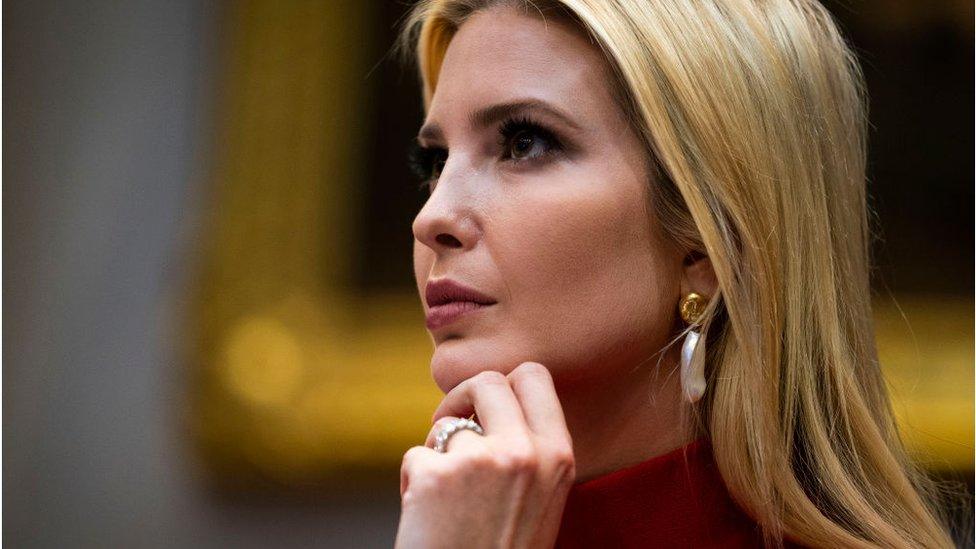Coronavirus: President Trump defends tweets against US states' lockdowns
- Published
Trump says some states are too tough with restrictions
President Donald Trump has defended tweets in which he appeared to endorse protests against stringent lockdown measures in several US states.
At his Friday briefing, he said some measures imposed by Minnesota, Michigan and Virginia had been "too tough".
Earlier, he wrote in a series of tweets: "LIBERATE MINNESOTA", "LIBERATE MICHIGAN" and then "LIBERATE VIRGINIA".
The curbs, which include stay-at-home orders, are needed to slow the spread of coronavirus.
But protesters say they are hurting citizens by limiting movement unreasonably and stifling economic activity.
The three states the Republican president referred to in Friday's tweets are all led by Democratic governors. Mr Trump may be seeking to encourage his political base to protest against Democrats, the BBC's Anthony Zurcher says.
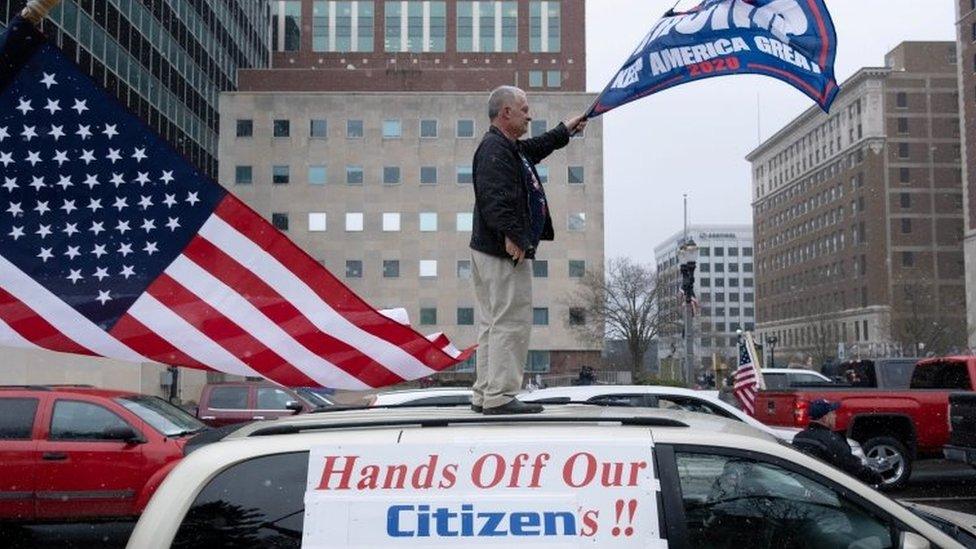
People have been protesting in the US state of Michigan against the "excessive quarantine"
Demonstrations calling on authorities to end the shutdown have occurred in Michigan, Ohio, North Carolina, Minnesota, Utah, Virginia and Kentucky.
But Mr Trump did not mention Ohio and Utah, which both have Republican governors.
His comments came shortly after the US saw its highest daily death toll from coronavirus, recording 4,591 deaths in 24 hours on Thursday.
That rise could be because Johns Hopkins University, which records the data, began to include deaths with a Covid-19 probable cause.
The US has the highest number of cases and deaths worldwide, with nearly 700,000 confirmed infections and more than 36,000 deaths.
More demonstrations against the lockdown measures are planned, including in Wisconsin, Oregon, Maryland, Idaho and Texas.
The protests have varied in size, ranging from a few dozen people in Virginia to thousands in Michigan.
Cuomo says that states need better resources from the government to reopen
Minnesota Governor Tim Walz responded to the president's tweets, saying he called the White House to ask "what they think we could have done differently" but did not hear back.
"The president unveiled a three step plan that mirrors exactly what we're trying to do," Mr Walz told reporters.
What does federal guidance say?
The president's apparent support for the protests comes a day after his administration unveiled new guidance for re-opening state economies.
That guidance recommends three phases of slowly re-opening businesses and social life, with each phase lasting a minimum of 14 days.
It includes some recommendations across all three phases including good personal hygiene and employers developing policies to ensure social distancing, testing and contact tracing.
Dr Anthony Fauci, from the White House coronavirus taskforce, cautioned that even as restrictions were eased "it's not game over".
He warned that the virus might rebound, and there could be setbacks along the way.

Upping the pressure - and political risk

On Friday morning Donald Trump fired off a series of tweets calling for the "liberation" of three states with Democratic governors, as though they were enemy-controlled territory.
The message seems apparent.
The governor of one, Michigan's Gretchen Whitmer, recently was the target of a mass protest at the state capital against her sweeping lockdown orders. A mixed crowd of conservatives, white nationalists and anti-government militias waved Confederate and pro-Trump flags, and signs accusing Whitmer of dictatorial overreach.
Another of the states, Virginia, had its own capital protests earlier in the year from gun-rights activists.
The president's social media fusillade suggests his goal is to reward - or encourage - such shows of force from his political base, as opinion polls indicate Trump's approval rating is sagging after a boost during the early weeks of the outbreak.
Trump followed those incendiary tweets by criticising New York's Andrew Cuomo, another Democrat, for mishandling the pandemic and spending too much time "complaining".
Just a day after Trump reportedly told governors in a conference call they would "call the shots" on when to begin easing restrictions, it appears the president wants to up the pressure - and the political risk - for Democrats by other means at his disposal.
Trump has benefitted in the past from a finely tuned sense of the sentiments - and resentments - of his supporters. Friday morning could be an indication that he's positioning himself to again stand in their midst.

Why are people protesting?
Protesters say stringent restrictions on movement and businesses are an overreaction to the outbreak.
Organisers of the Liberate Minnesota protest wrote on Facebook: "It is not the governor's place to restrict free movement of Minnesota citizens!"
"President Trump has been very clear that we must get America back to work very quickly or the 'cure' to this terrible disease may be the worse option!"
Coronavirus: Michigan residents protest governor's stay-at-home orders
The group added that the state's economy would be "dealt a death blow" if restrictions continued.
The event now has over 600 attendees marked on Facebook and some 2,800 more users interested in the event.
Earlier this week, in Michigan, thousands of protesting workers blocked roads, demanding the state reopen after Governor Whitmer extended stay-at-home restrictions.
The governor is also facing federal lawsuits against her orders shuttering non-essential businesses and limiting travel.
However, public health experts, and some state governors including Republican governors, have stressed the importance of social distancing.
On Friday, Texas Governor Greg Abbott announced he was establishing a "strike force" to "safely and strategically" re-open America's second largest state.
The group of medical, public and private sector leaders will look into what services and activities may resume under existing guidelines.
The governor will offer a re-opening plan based on the findings on 27 April.
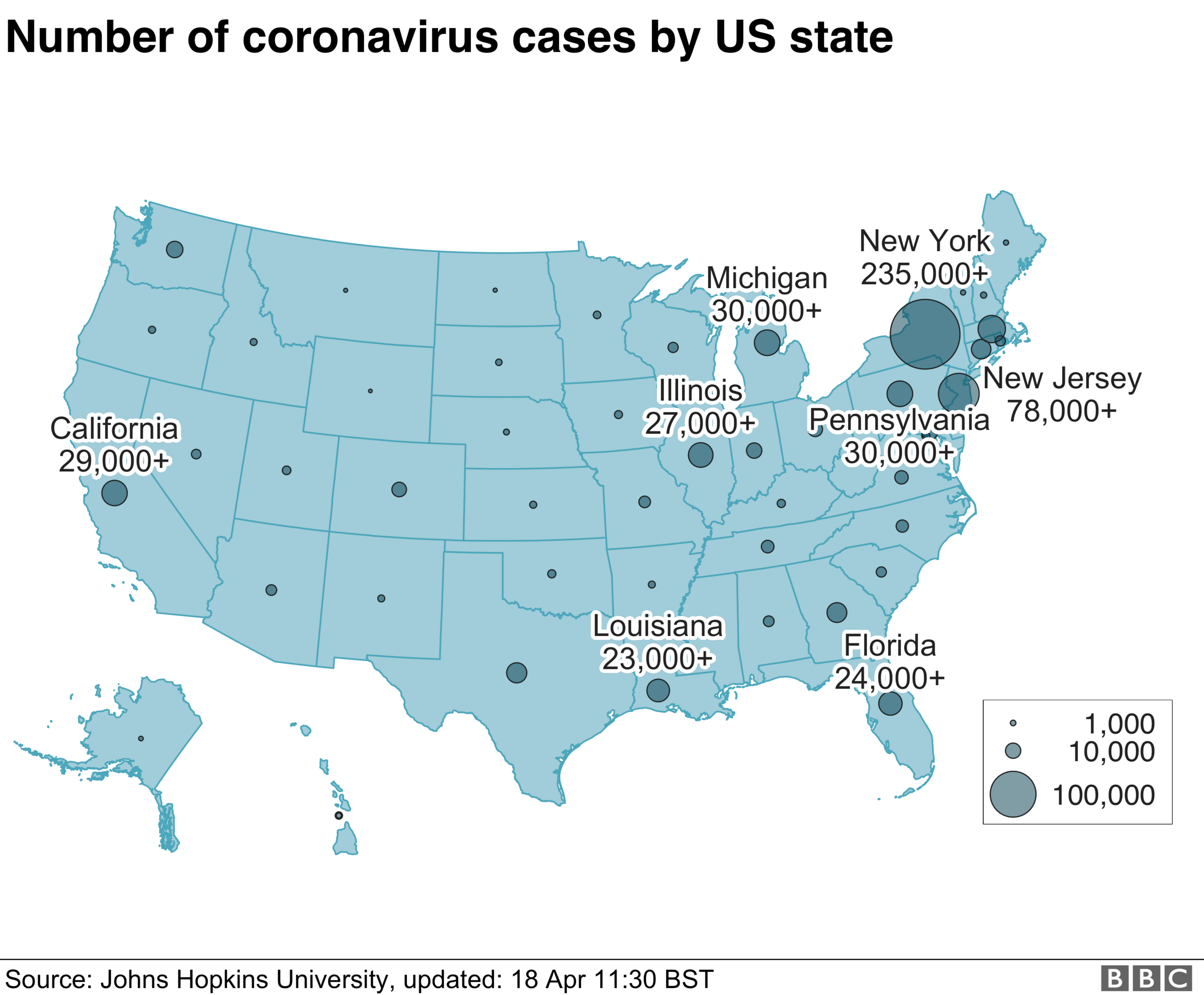
In addition, Mr Abbott said retail outlets that are able to deliver goods to customer's cars, homes or other locations with minimal contact may begin operating on 24 April.
In Florida, the mayor of Jacksonville said he would re-open beaches with limited hours starting on Friday.
Mayor Lenny Curry said residents must still practice social distancing but could use beaches for exercise and recreation.
Parks in the city will also be opened, though gatherings of more than 50 are banned.
In other developments:
China's city of Wuhan, where the coronavirus outbreak originated last year, on Friday raised its official Covid-19 death toll by 50%, adding 1,290 fatalities
In Nigeria, President Muhammadu Buhari's chief of staff, Abba Kyari, died on Friday after contracting coronavirus
After a lockdown lasting 45 days, Chile's President Sebastián Piñera, announced the country would begin a gradual return to full economic activity
Brazil has recorded its highest daily death toll from Covid-19, with 217 fatalities taking its total above 2,100, the highest in South America

A SIMPLE GUIDE: How do I protect myself?
AVOIDING CONTACT: The rules on self-isolation and exercise
HOPE AND LOSS: Your coronavirus stories
VIDEO: The 20-second hand wash

- Published16 April 2020
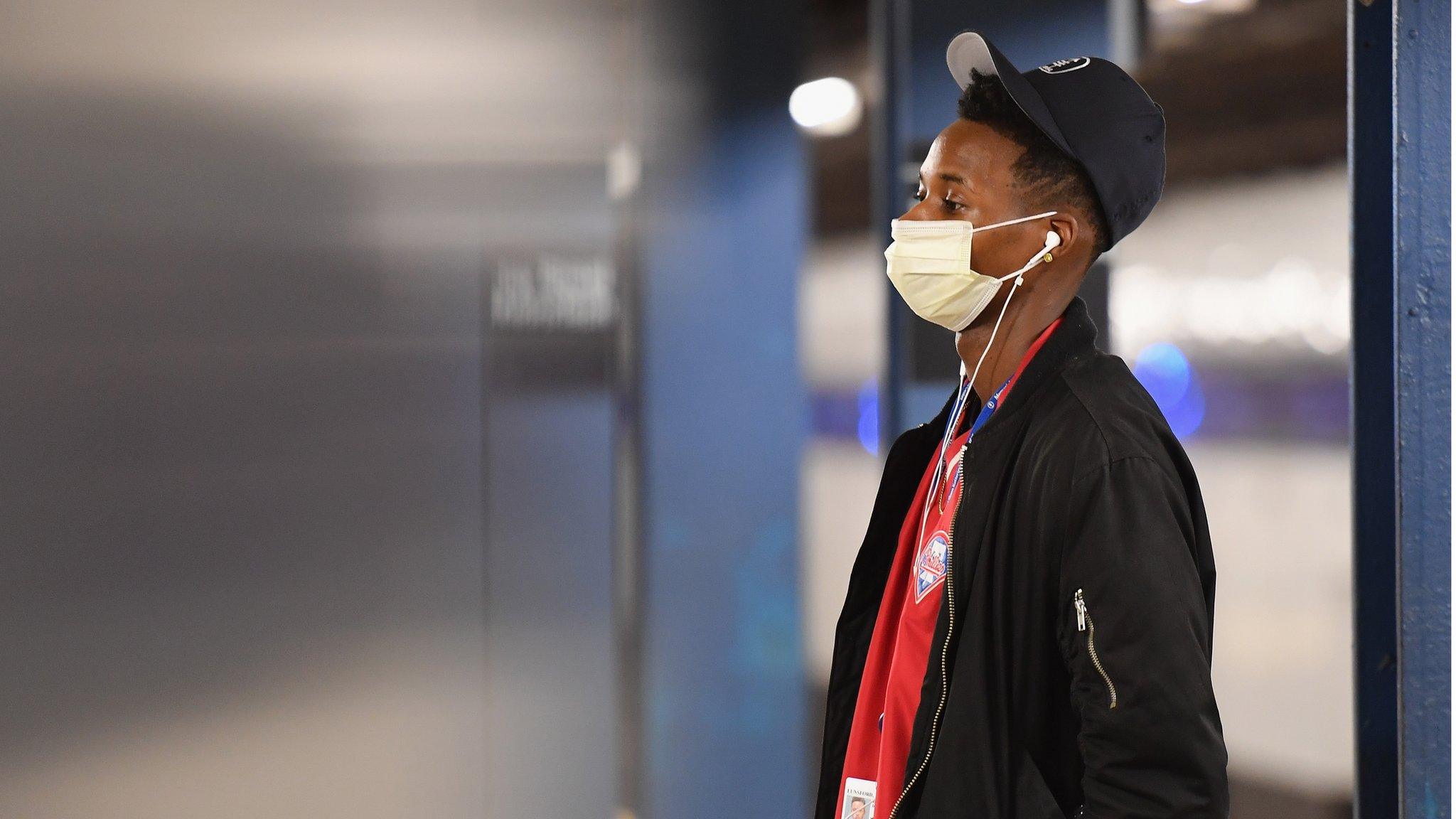
- Published17 April 2020
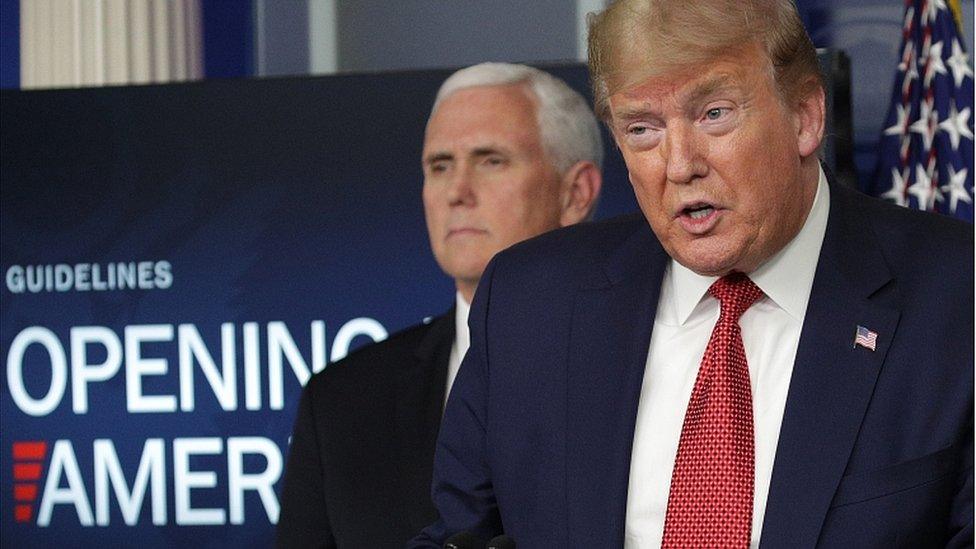
- Published16 April 2020
